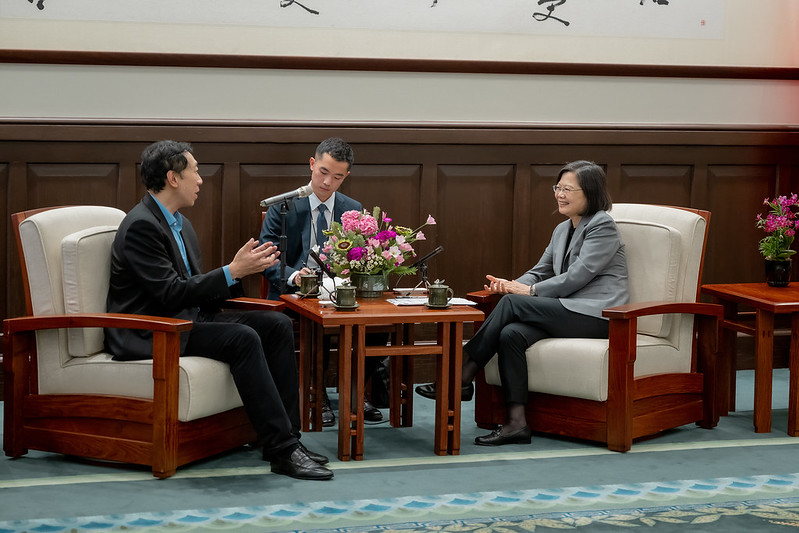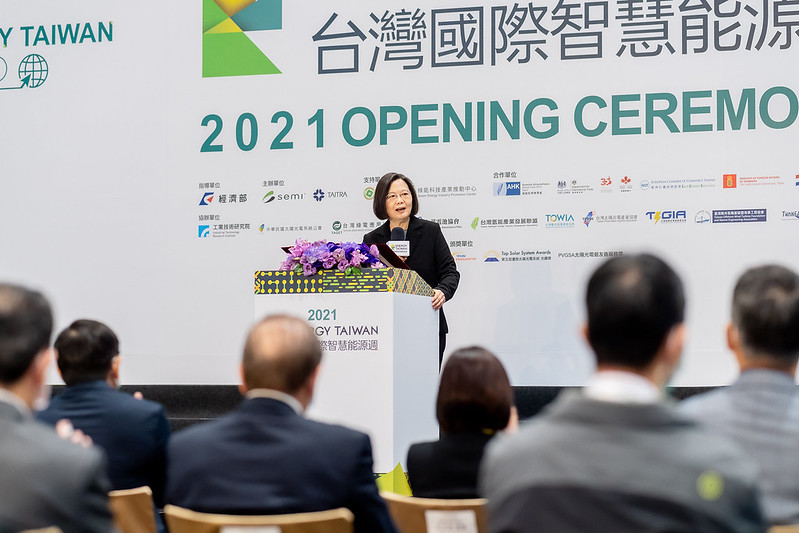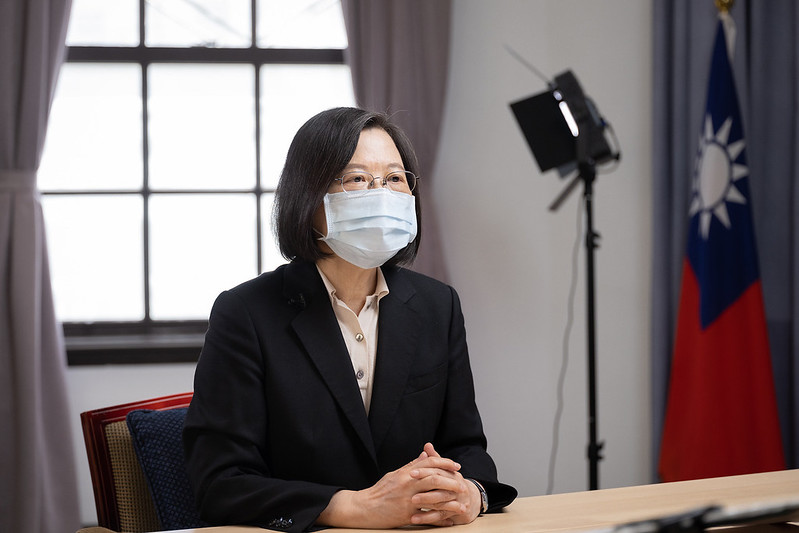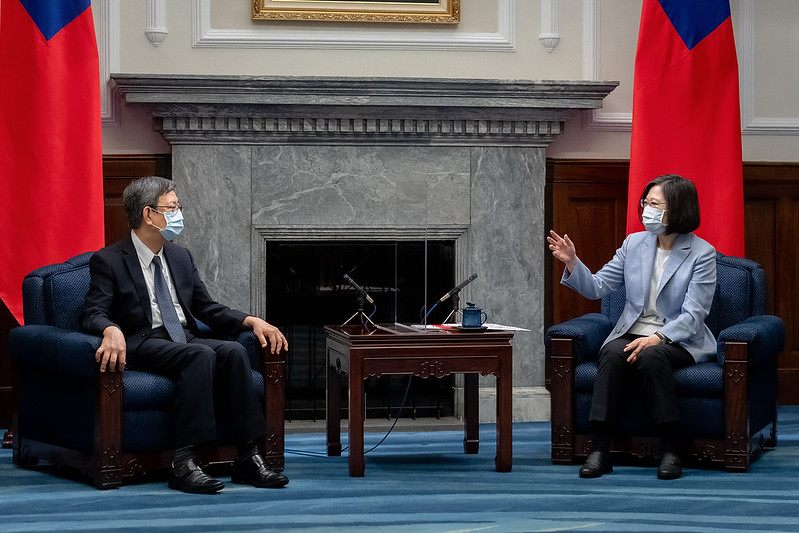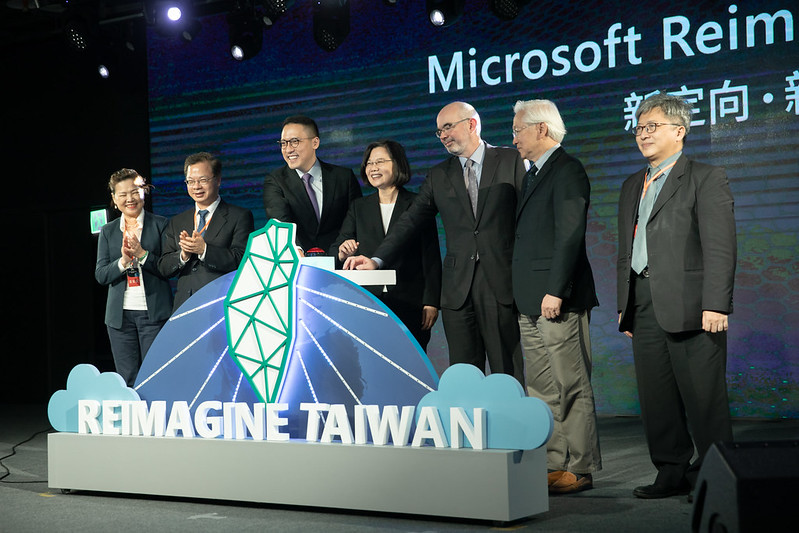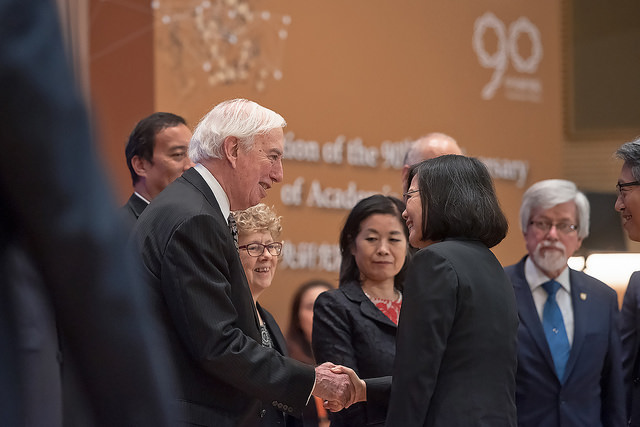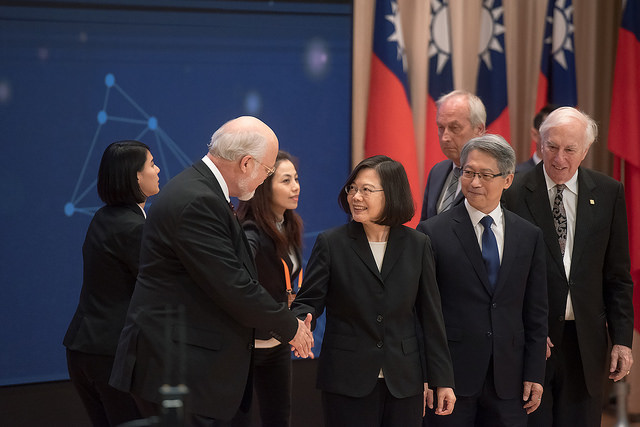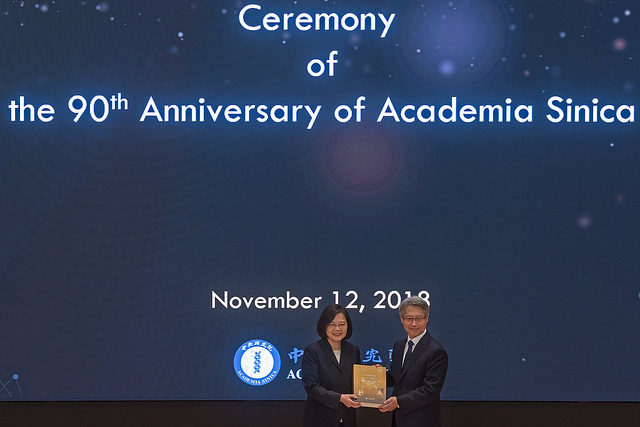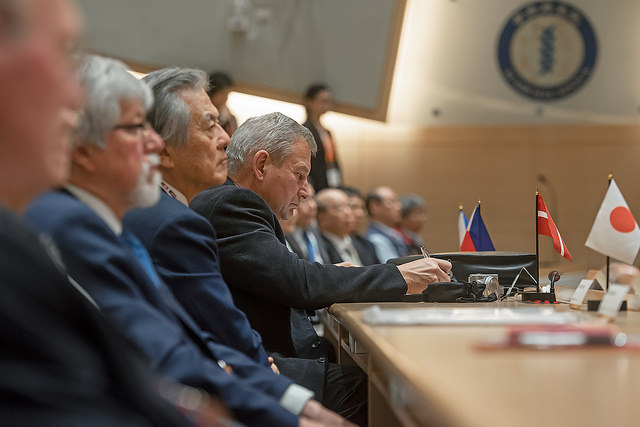News & activities
 News releases
News releases
On the afternoon of November 12, President Tsai Ing-wen attended the International Scientific Leaders' Forum, marking Academia Sinica's 90th Anniversary. She said she looks forward to Taiwan working together with preeminent scientists and experts from around the world to forge deeper ties of knowledge, start more joint programs of research, advance scientific development, and benefit all our societies.
A transcript of the president's remarks follows:
Good afternoon, ladies and gentlemen. It is an honor to join so many preeminent scientists and experts from the world's top science academies and institutions to celebrate the 90th anniversary of Academia Sinica.
To begin, I would like to thank President Liao (James C. Liao/廖俊智, current Academia Sinica President), President Lee (Lee Yuan-tseh/李遠哲, Academia Sinica President 1994-2006), and President Wong (Wong Chi-huey/翁啟惠, Academia Sinica President 2006-2016), and everyone from Academia Sinica for your hard work. I would also like to thank our friends from the diplomatic community, and everyone who traveled all the way to Taiwan to join us for this celebration.
Today is a very special occasion with tremendous significance for our country, so it is a privilege to extend my heartfelt congratulations to Academia Sinica—the most prestigious research institution in our country.
Created in 1928, Academia Sinica has produced decades of groundbreaking research in the humanities and social sciences, mathematics and physical sciences, and the life sciences.
For the past 90 years, Academia Sinica has striven to answer big questions, address tough challenges, and generate new ideas, not just for the country, but also for people around the world.
Academia Sinica's research products have also helped Taiwan become a driving force of global scientific and economic development. Many of our academicians and fellows have received international awards for their outstanding achievements in chemistry, physics, biology, public health, energy technology, and more.
So the past nine decades of Academia Sinica fill us with pride, and I trust that the next 90 years will inspire excitement and optimism.
We are optimistic because of the efforts of President Liao and every one at Academia Sinica, and the dynamic energy and vision they have brought into this institution.
Just look at how the number of people visiting this year's Academia Sinica Open House set records, and the popularity of Academia Sinica's new popular science website.
Look also at the new research initiatives, from glycoscience to climate change predictions. It is clear that Academia Sinica is putting a lot of effort into the next generation of scientific research, and nurturing the next generation of thinkers and innovators.
For my part, I can assure you that my government will continue to support basic research, both through budget allocations, and policy initiatives. We will also continue to work with you to ensure sustainable development for the future generations of this country and the world.
Certainly, Taiwan cannot do this alone. So, to nurture talent at home and attract talent from abroad, we are making critical investments.
Earlier this year, we broke ground on Academia Sinica's southern campus, which will combine Academia Sinica's vast research capacities with southern Taiwan's strengths in agriculture, industry, and green energy to produce research that will be essential to a sustainable future.
Also last month, we inaugurated the National Biotechnology Research Park, which unites all the elements needed to push the frontiers of bio and pharmaceutical science, from animal trials to regulatory affairs. This park will also be a key hub not just for Taiwan, but for innovators from around the world.
I want to thank Science and Technology Minister Chen (Chen Liang-Gee/陳良基), and other members of my administration who are here with us today. Thank you for working tirelessly to make sure that Taiwan will continue to play a role in the global development of science and technology.
And just as it has done in the past 90 years, I trust that Academia Sinica will continue to engage in science that benefits Taiwan, the world, and humanity at large.
But Academia Sinica's ability to contribute will be even greater in partnership with other science academies and research institutions, particularly those that are with us today.
Science can only advance when it transcends the boundaries imposed by countries, faith, geography, gender and disciplines.
So to our international friends who are with us today, I have a simple message: let us forge even deeper ties of knowledge, and start even more joint programs of research, so that together, we can advance science for the benefit of all our societies.
Congratulations once again to Academia Sinica and the science community for an amazing 90 years. We have no doubt that the next 90 years will bring even greater achievements and pride. Thank you.
Attendees included Minister of Science and Technology Chen Liang-Gee, Academia Sinica President James C. Liao, former Academia Sinica Presidents Lee Yuan-tseh and Wong Chi-huey.
